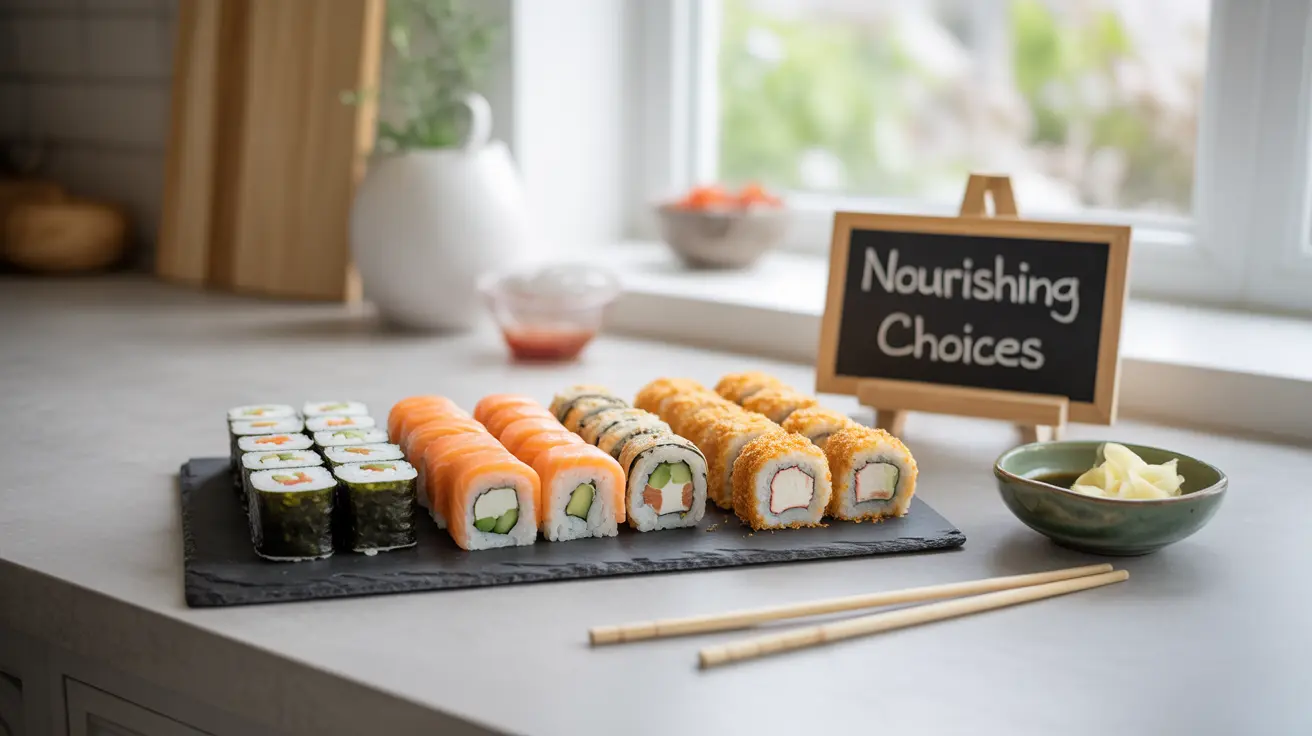Pregnancy brings many dietary changes and questions, with sushi being one of the most debated foods. Understanding why certain types of sushi are off-limits during pregnancy and which alternatives remain safe is crucial for both maternal and fetal health.
This comprehensive guide explores the science behind sushi safety during pregnancy, helping you make informed decisions about your diet while satisfying your sushi cravings safely.
Understanding the Risks of Raw Fish During Pregnancy
The primary concern with consuming raw fish sushi during pregnancy relates to potential exposure to harmful bacteria, parasites, and elevated mercury levels. Raw and undercooked seafood can harbor microorganisms that a pregnant woman's compromised immune system may struggle to fight off effectively.
Bacterial and Parasitic Concerns
Raw fish may contain bacteria like Listeria or parasites such as anisakis worms. These pathogens can cause serious complications during pregnancy, potentially affecting both the mother and developing baby. The normal processes used to prepare raw fish for sushi may not eliminate all these risks.
Safe Sushi Options for Pregnant Women
Fortunately, pregnancy doesn't mean completely avoiding sushi. Several safe alternatives allow you to enjoy this cuisine while maintaining proper pregnancy nutrition:
- Vegetable rolls (cucumber, avocado, carrot)
- Cooked fish rolls (tempura or fully cooked seafood)
- California rolls made with imitation crab (cooked)
- Rolls containing cooked eel (unagi)
- Sweet potato or pumpkin tempura rolls
Mercury Levels and Pregnancy
Mercury content in fish presents another significant concern during pregnancy. Some fish commonly used in sushi contain higher levels of mercury, which can potentially harm fetal nervous system development:
High-Mercury Fish to Avoid
- Tuna (especially bigeye and yellowfin)
- Mackerel
- Swordfish
- Shark
- King mackerel
Low-Mercury Alternatives
When choosing cooked fish sushi, opt for species known to be lower in mercury:
- Salmon
- Shrimp
- Cod
- Catfish
- Tilapia
When to Stop Eating Raw Fish Sushi
The safest approach is to avoid raw fish sushi as soon as you know you're pregnant or are trying to conceive. This precaution helps prevent potential exposure to harmful substances during the critical early stages of pregnancy when the fetal nervous system is developing.
Preventing Foodborne Illness
To minimize the risk of foodborne illness while enjoying safe sushi options during pregnancy:
- Choose reputable restaurants with high health ratings
- Ensure all fish is properly cooked to safe temperatures
- Avoid cross-contamination between raw and cooked ingredients
- Store leftover sushi properly in the refrigerator
- Consume within 24 hours of purchase
Frequently Asked Questions
Why is eating raw sushi unsafe during pregnancy?
Raw sushi is unsafe during pregnancy because it may contain harmful bacteria, parasites, and viruses that can cause serious infections. Pregnant women's immune systems are naturally suppressed, making them more susceptible to foodborne illnesses that could affect both mother and baby.
What types of sushi are safe to eat while pregnant?
Safe sushi options during pregnancy include fully cooked fish rolls, vegetable rolls, California rolls made with imitation crab, and tempura rolls. These alternatives eliminate the risks associated with raw fish while still allowing you to enjoy sushi.
How does mercury in sushi fish affect pregnancy and the baby?
Mercury in fish can cross the placental barrier and potentially harm the developing fetal nervous system. High mercury levels may impact cognitive development, which is why it's important to choose low-mercury fish options when consuming cooked fish sushi.
When should pregnant women stop eating raw fish sushi?
Women should stop eating raw fish sushi as soon as they know they're pregnant or are actively trying to conceive. This preventive measure helps avoid potential complications from the earliest stages of pregnancy.
What are the risks of foodborne illnesses from sushi during pregnancy?
Foodborne illnesses from sushi during pregnancy can include listeriosis, salmonella infection, and parasitic infections. These conditions can lead to serious complications including miscarriage, premature delivery, and severe illness in the mother.




